#stop trying to portray this behavior as 'critically examining art'
Explore tagged Tumblr posts
Text
ive seen several posts already with thousands of notes that were Literally just. reposting screenshots/tweets of literal right wingers from twitter, that were shitting on some random trans persons art who has like 2k followers. can we not do this. i dont care if that trans person made some really bad art. i think you don't need to join/transfer a right wing hate mob when that person was already dealing with a right winger harassment campaign for weeks, if not months, if not years. I DONT CARE if their art is like, really bad, and we should show everybody and make fun of them publically and get 10k notes (btw notice that those notes are always crawling with terfs and transphobes). at least if you literally copy a nazis post from twitter to make fun of someone have the decency to disable reblogs so it stays within your stupid hateful circle
#you arent offering any analysis or intelligent commentary btw#you are doing nothing except harassing and hating a person and joining an already existing harassment mob#stop trying to portray this behavior as 'critically examining art'#you arent doing that youre reposting tweets from nazis#this happens with other minority groups but the posts ive seen were always aimed at trans people
53 notes
·
View notes
Link
It’s a strange experience, watching a younger, more innocent version of yourself onscreen. It’s stranger still—surreal, even—watching it with your child when she is much closer in age to that version of yourself than you are. My friend was right: my daughter didn’t really seem to register most of the sex stuff, though she did audibly gasp when she thought I had showed my underwear. At one point in the film, the bad-boy character, John Bender, ducks under the table where my character, Claire, is sitting, to hide from a teacher. While there, he takes the opportunity to peek under Claire’s skirt and, though the audience doesn’t see, it is implied that he touches her inappropriately. I was quick to point out to my daughter that the person in the underwear wasn’t really me, though that clarification seemed inconsequential. We kept watching, and, despite my best intentions to give context to the uncomfortable bits, I didn’t elaborate on what might have gone on under the table. She expressed no curiosity in anything sexual, so I decided to follow her lead, and discuss what seemed to resonate with her more. Maybe I just chickened out.
But I kept thinking about that scene. I thought about it again this past fall, after a number of women came forward with sexual-assault accusations against the producer Harvey Weinstein, and the #MeToo movement gathered steam. If attitudes toward female subjugation are systemic, and I believe that they are, it stands to reason that the art we consume and sanction plays some part in reinforcing those same attitudes. I made three movies with John Hughes; when they were released, they made enough of a cultural impact to land me on the cover of Time magazine and to get Hughes hailed as a genius. His critical reputation has only grown since he died, in 2009, at the age of fifty-nine. Hughes’s films play constantly on television and are even taught in schools. There is still so much that I love in them, but lately I have felt the need to examine the role that these movies have played in our cultural life: where they came from, and what they might mean now. When my daughter proposed watching “The Breakfast Club” together, I had hesitated, not knowing how she would react: if she would understand the film or if she would even like it. I worried that she would find aspects of it troubling, but I hadn’t anticipated that it would ultimately be most troubling to me.
I had what could be called a symbiotic relationship with John during the first two of those films. I’ve been called his muse, which I believe I was, for a little while. But, more than that, I felt that he listened to me—though certainly not all the time. Coming out of the National Lampoon school of comedy, there was still a residue of crassness that clung, no matter how much I protested. In the shooting script of “The Breakfast Club,” there was a scene in which an attractive female gym teacher swam naked in the school’s swimming pool as Mr. Vernon, the teacher who is in charge of the students’ detention, spied on her. The scene wasn’t in the first draft I read, and I lobbied John to cut it. He did, and although I’m sure the actress who had been cast in the part still blames me for foiling her break, I think the film is better for it. In “Sixteen Candles,” a character alternately called the Geek and Farmer Ted makes a bet with friends that he can score with my character, Samantha; by way of proof, he says, he will secure her underwear. Later in the film, after Samantha agrees to help the Geek by loaning her underwear to him, she has a heartwarming scene with her father. It originally ended with the father asking, “Sam, what the hell happened to your underpants?” My mom objected. “Why would a father know what happened to his daughter’s underwear?” she asked. John squirmed uncomfortably. He didn’t mean it that way, he said—it was just a joke, a punch line. “But it’s not funny,” my mother said. “It’s creepy.” The line was changed to “Just remember, Sam, you wear the pants in the family.”
My mom also spoke up during the filming of that scene in “The Breakfast Club,” when they hired an adult woman for the shot of Claire’s underwear. They couldn’t even ask me to do it—I don’t think it was permitted by law to ask a minor—but even having another person pretend to be me was embarrassing to me and upsetting to my mother, and she said so. That scene stayed, though. What’s more, as I can see now, Bender sexually harasses Claire throughout the film. When he’s not sexualizing her, he takes out his rage on her with vicious contempt, calling her “pathetic,” mocking her as “Queenie.” It’s rejection that inspires his vitriol. Claire acts dismissively toward him, and, in a pivotal scene near the end, she predicts that at school on Monday morning, even though the group has bonded, things will return, socially, to the status quo. “Just bury your head in the sand and wait for your fuckin’ prom!” Bender yells. He never apologizes for any of it, but, nevertheless, he gets the girl in the end.
If I sound overly critical, it’s only with hindsight. Back then, I was only vaguely aware of how inappropriate much of John’s writing was, given my limited experience and what was considered normal at the time. I was well into my thirties before I stopped considering verbally abusive men more interesting than the nice ones. I’m a little embarrassed to say that it took even longer for me to fully comprehend the scene late in “Sixteen Candles,” when the dreamboat, Jake, essentially trades his drunk girlfriend, Caroline, to the Geek, to satisfy the latter’s sexual urges, in return for Samantha’s underwear. The Geek takes Polaroids with Caroline to have proof of his conquest; when she wakes up in the morning with someone she doesn’t know, he asks her if she “enjoyed it.” (Neither of them seems to remember much.) Caroline shakes her head in wonderment and says, “You know, I have this weird feeling I did.” She had to have a feeling about it, rather than a thought, because thoughts are things we have when we are conscious, and she wasn’t.
Thinking about that scene, I became curious how the actress who played Caroline, Haviland Morris, felt about the character she portrayed. So I sent her an e-mail. We hadn’t seen or spoken to each other since she was twenty-three and I was fifteen. We met for coffee, and after we had filled each other in on all the intervening years, I asked her about it. Haviland, I was surprised to learn, does not have the same issues with the scene as I do. In her mind, Caroline bears some responsibility for what happens, because of how drunk she gets at the party. “I’m not saying that it’s O.K. to then be raped or to have nonconsensual sex,” Haviland clarified. “But . . . that’s not a one-way street. Here’s a girl who gets herself so bombed that she doesn’t even know what’s going on.”
There was a time in my early twenties when I had too much to drink at a party and ended up in a bedroom sitting on the edge of a bed with a producer I didn’t know, lightheaded and woozy. A good friend, who had followed me, popped her head in the door a couple of minutes later and announced, “Time to go now, Molly!” I followed her out, trying not to stumble, and spent the rest of the night violently ill and embarrassed—and the rest of my life grateful that she had been there, watching out for me, when I was temporarily incapable of watching out for myself. I shared the story with Haviland, and she listened politely, nodding.
Haviland, like me, has children, and so I decided to frame the question hypothetically, mother to mother, to see if it changed her point of view. If one of our kids had too much to drink, and something like that happened to one of them, would she say, “It’s on you, because you drank too much”? She shook her head: “No. Absolutely, positively, it stays in your pants until invited by someone who is willing and consensually able to invite you to remove it.” Still, she added, “I’m not going to black-and-white it. It isn’t a one-way street.”
After our coffee, I responded to an e-mail from Haviland to thank her for agreeing to talk to me. Later that night, I received another note. “You know,” she wrote, “the more I think of it this evening, oddly, the less uncomfortable I am with Caroline. Jake was disgusted with her and said he could violate her 17 ways if he wanted to because she was so trashed, but he didn’t. And then, Ted was the one who had to ask if they had had sex, which certainly doesn’t demonstrate responsible behavior from either party, but also doesn’t really spell date rape. On the other hand, she was basically traded for a pair of underwear . . . Ah, John Hughes.”
61 notes
·
View notes
Text
Mel Feller MPA, MHR, Discusses Ways to Become a Great Leader
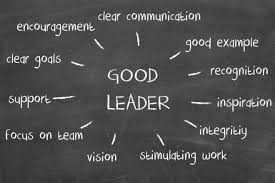
Mel Feller MPA, MHR, Discusses Ways to Become a Great Leader
Mel is the President/Founder of Mel Feller Seminars with Coaching for Success 360, Inc. and Mel Feller Coaching. Mel Feller is an Innovator and Business Leader. Mel Feller currently maintains an office in Texas. Mel is currently an MBA Candidate.
“Never underestimate the power of dreams and the influence of the human spirit. We are all the same in this notion: The potential for greatness lives within each of us.”—Wilma Rudolph
When you think about the idea of Conscious Leadership, you may even agree we need a different leadership paradigm. This is where you must pause, step back and look within. It starts with self-awareness and a commitment to lead in a better way. Every intentional step that you take in becoming a more awake leader makes the journey that much more purpose-driven and fulfilling because you will be able to unlock the greatness in yourself and in those whom you serve.
In the meantime, I will focus on practical ways you can begin developing everyday habits that will help you become a more conscious leader. None of these steps is esoteric or unachievable there are endless ways for leaders to improve, inspire and engage employees.
The reflection points below take the words out of your mind and into the real world to practice so you can step more fully into your highest potential. I recommend beginning by picking just one area to focus on initially, the area you feel would have the greatest impact for you and your team.
Cultivate authenticity. Most of us do not trust leaders who portray a perfect image. We want leaders to be real. Authenticity is having self-awareness, knowing who you are on the inside your strengths, weaknesses, values, beliefs, leadership type and bringing this into your conscious awareness.
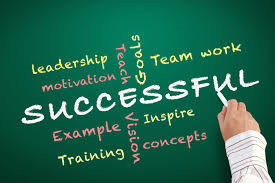
It is an honest and a brave self-examination, which takes courage but is well worth the effort. By knowing who you are at your core, you can create an environment where others can trust you, can thrive and can do their best work.
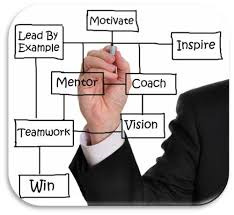
How to cultivate authenticity:
Learn to be silent, to go within to recognize your inner wisdom, your purpose in life and then open yourself to its wise counsel.
Reflect on your leadership philosophy, values, beliefs, motives and style. What impact do all of these have on you, your team and your organization?
Think about what people consistently tell you that you need to work on. What is one new behavior you are willing to practice to be an authentic leader?
What benefits will this new behavior bring to you, your team and organization?
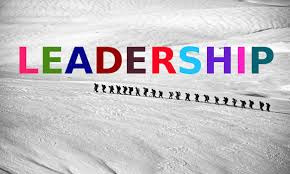
Develop conscious awareness. Awareness is fundamental to positive change, yet you must train yourself to be aware of it. When you do this, your mind becomes more focused and in tune with yourself and your environment, conscious awareness is being mindful, aware and present in the moment. It means being fully conscious of what’s going on, both within us and outside us, and how our behaviors affect others.
How to develop conscious awareness:
There are different ways to develop conscious awareness and mindfulness, including meditation, yoga and martial arts. All help us respond differently to life.
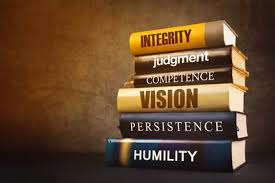
Take time to notice what it feels like to be aware. Stop for a moment to be aware of your awareness and observe. Do not judge it, simply notice it.
Be aware of your current state of mind. Is it impatient? Curious? Creative? Calm? What about your energy levels or feelings? Spend just 10 minutes a day to reflect and journal on your awareness.
Grow and foster virtues. Virtues give meaning and purpose to our lives and include such things as service, love, courage, compassion, integrity, humility, generosity, accountability and transparency. Virtues develop our character. This takes time, so develop yourself in stages.
No one is perfect, yet the more we practice applying virtues in different situations, the stronger our character muscle becomes. We mature in our thinking, decisions, emotions and behaviors.
Leading with virtues empowers organizations and society to operate with higher purpose. It also inspires others to be their best and delivers superior, sustainable results.
Examples of virtues in action:
Practicing Generosity as a leader means you listen with your heart to understand others, show your appreciation for unique talents, celebrate successes and develop others so they can become their best by providing tools, training, resources and coaching.
Practicing Humility as a leader means you give credit for others’ contributions, admit mistakes and change the course of action to make it right, ask for feedback and check in on your ego. It also means that you can speak of your failures and weaknesses to teach others.
Practicing Courage as a leader means you can say, “I don’t know,” ask for help, let go of the need to control situations, risk being vulnerable, have faith in people, provide tough but kind feedback to help another grow, give hope when confronted with great odds, voice unpopular opinions, and make tough decisions.
How to grow and foster virtues:
Consider what you can do to encourage the conversations within yourself and with others to strengthen the importance that virtues and character have in leadership.
What practices, personal inquiry and reflection can you implement to develop one or two virtues to become a better leader?
Think about who can support you in this development.

What would our work life look like if we practiced more generosity, humility, or courage? How would these practices increase employee engagement and commitment?
“LEADERS BECOME GREAT, NOT BECAUSE OF THEIR POWER, BUT BECAUSE OF THEIR ABILITY TO EMPOWER OTHERS.” JOHN MAXWELL
Here are a few more approaches to consider.
Embrace purpose and vision. Purpose is why you exist. Great leaders communicate their why, the greater cause and what they stand for. The why must have a foothold in the hearts of people before you articulate what you want them to do. Viktor Frankl was a neurologist, psychiatrist and Holocaust survivor. Frankl’s theory is that man’s search for meaning is the primary motivation in one’s life. Frankl says, “those who have a ���why’ to live, can bear with almost any ‘how.”
Once leaders communicate purpose, vision is future-oriented and describes what the organization will leave the world by living its purpose. Purpose and vision builds trust and inspires employees to see they are contributing to something bigger than themselves. It shows people how they fit into this big picture, the difference this will make in the world, and why they should care.
A great example of this comes from perhaps the most moving American speeches of the 20th century, Dr. King’s “I Have a Dream.” King’s speech inspired action in others then and to this day. His example of giving others something specific to strive for something bigger than themselves is a heart-felt example for a leader of any group to follow.
By bringing purpose and vision to life, employees, customers, and stakeholders will feel empowered, energized, inspired, courageous, and resilient especially when times are tough. They will step into their highest potential and produce extraordinary results and long-term success.
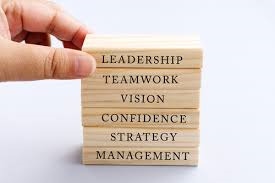
How to embrace your individual and organization’s purpose and vision:
What impact do you want to make as a leader? Why did you want to be a leader in the first place? What is the difference you are trying to make in the world? What do you stand for?
Think about your organization’s purpose. What is the vision for the future?
What is your message to inspire your team to rally behind this purpose and vision?
Consider how your employees will act, think and feel when they contribute to this purpose and vison.
Reflect and journal a few minutes each day on these questions.
Practice Service. Create value for all stakeholders, employees and customers so the whole flourishes. Rise above self-interest and individual perspective and serve with a more global view. By practicing service, you understand and appreciate each person’s role in perfecting this world and lead others accordingly. You also trust and believe that individuals are critical links in the chain and that their unique skills fulfill a higher purpose.
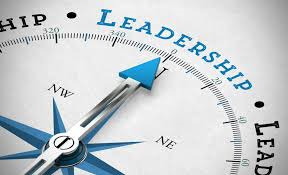
How to practice service:
Explore how you are building a culture of service in a way that contributes to the good of all.
What development programs are in the organization that will foster conscious leadership and service for the greater good? How can you engage others in this conversation?
What can you do to show employees, stakeholders and customers that you respect, appreciate and care about their goals and needs?
Increase Emotional Intelligence. Scientists base emotional Intelligence on years of research. It is about being aware of, managing our emotions, and working more effectively with others to improve relationships and performance. People benefit in many ways from having a high level of emotional intelligence.
How to increase your emotional intelligence:
Take a baseline EQ assessment. Choose one skill and one strategy, then track and practice them for at least three months.
Learn to recognize stress triggers and how to deal with them.
Practice open-mindedness and curiosity.
Hire a coach to help you to develop and grow your emotional intelligence.
Build Support: Take a holistic approach to development. Find peers, coaches and mentors to help you in your ongoing development as a person and a leader.
How to build support:
Read or attend a lecture or get involved in a conscious leadership community or forum.
When there are qualities you admire in a leader of strong character and virtue, ask yourself how you can stretch and grow to develop those qualities.
Make a commitment and take action to continuously grow and develop as a leader.
As you work through these approaches, remember developing new behaviors and habits is a process that requires commitment, patience and perseverance. Changes do not happen overnight. Yet as your leadership style gradually shifts towards conscious leadership, you will no doubt find enormous benefits from your efforts.
Yesterday’s leadership can no longer support the shifting world dynamics that are taking place today. We need a radically different leadership approach more leaders who lead from a place of service, values and higher purpose. People are hungry for this kind of leadership. Employees need to know they are valued, appreciated, respected, and make a difference. We can join hands and help each other to lead from a higher place, so individually and collectively, we can flourish and reach our human potential for the greater good of organizations and humanity as a whole.
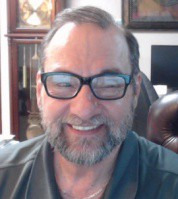
Mel Feller, MPA, MHR, is a well-known real estate, business consultant, personal development consultant and speaker, specializing in performance, productivity, and profits. Mel is the President/Founder of Mel Feller Seminars with Coaching for Success 360, Inc. and Mel Feller Coaching, a real estate and business specific coaching company. His three books for real estate professionals are systems on how to become an exceptional sales performer. His four books in Business and Government Grants are ways to leverage and increase your business Success in both time and money! His book on Personal Development “Lies that Will Sabotage Your Success”. Mel Feller is located in Texas.
Mel Feller, MPA, MHR
#mel feller discusses ways to become a great leader#leadership#leaders#lead by example#lead#become the best leader#personal development better yourself#becoming better#better you#better than competition#better yourself#influencer#influence#clear communication#mel feller#melfeller bio#mel feller coaching#mel feller seminars#mel feller leadership#mel feller in texas#mel feller in dallas texas#success#Coaching For Success 360#melfeller.com#melfellersuccessstories.com
0 notes
Text
Things I Enjoyed This Week
Hello Again. Hope you’re having a good weekend! Here’s some things I watched/listened/obsessed over this week. This week I’m going to try to be a little more thorough on what each piece of content contains this time.
Main Fixation
Banana Fish
This is going to be here for the next 30 weeks and I don’t know what to tell you. Oh wait I do have something to say that I probably can’t sneak into the Eiji and Ash post I’m doing (hopefully it’ll be done by Tuesday.)
WHY IS NO ONE TALKING ABOUT HOW HORRENDOUS OF A POKER FACE EIJI HAS WHEN TALKING TO IBE.

“Oh, I will,” he says casually with his eyes bulging out of his sockets. I loved Eiji in the manga and I’m loving Eiji in the anime and frames like this really say a thousand words about him. I have a more depressing image that also says a thousand words but I’ll put that on a solo post later tomorrow.
Videos
Cooking With Twinkies! by brutalmoose
contains food products including sweets such as twinkies, ice cream and cookies, condiments, cooked and uncooked sausage and hot dogs, as well as a man cooking and eating said food.
Brutalmoose’s videos are always a treat to see, whether he’s making frozen dinners, cooking weird recipes, watching old tv or television movies, or playing far off video games. This one is him dressed in a mustard twinkie suit making food...using twinkies. The art is in the editing hon. And by that I mean it’s odd.
Down the Rabbit Hole by Fredrik Knudsen
contains disturbing information regarding things ranging from cult-like activity to mental illness to online abuse to attempted murder and suicide. viewer discretion is advised.
Hey hi I accidentally binge-watched this whole playlist. It’s documentary-like video series describing strange, often disturbing events ranging from events involving content creators to historical events like the plague. What makes this series work I think is how the narrator acts completely separate from the events, only giving information in order to allow you to draw your own conclusion.
Arthur Games #2! by PeanutButterGamer
contain bits of video made to make Arthur and its characters disturbing. some edits are disjointed and a little off-putting
Another video that relies on odd editing. These videos range from funny to slightly surreal. It’s about Arthur games...based on Arthur. The only episode I remember watching of Arthur is the one where he broke a glass bird by accident, and then one where his sister wanted to wish on a shooting star...I don't know I put in here because I watched it okay?
Examining the Yaoi BL Genre by GoatJesus
contains discussion of sexual assault, homophobia and sexism along with showing episodes that include sexual assault.
I almost removed this because there are some opinions GoatJesus has that I heavily disagree with. However when it comes to this video in particular GoatJesus is very on point, so I feel like since I keep running into posts declaring they hate Yaoi (sometimes while putting any content with seemingly non-straight undertones into that category,) and then others justifying their love of Yaoi (but not...real LGDTQ+ people and the stories they write cough cough) by declaring some nonsensical reasoning like yaoi was before gay culture (which is...uhuh. sure. okay.) I think it’s important to have more videos like this that are clear and honest on how they feel about this topic.
The Shape of Ableism: How We Restrict Disabled and Disfigured Stories by The Princess and the Scrivener
contains discussion of mental and physical disabilities, ableism, prejudice, racism, sexism and how film portrays these topics with examples from The Elephant Man, Wonder, Me Before You, and The Shape of Water, among others.
The way Scrivener discusses topics and her response to “critical” comments speak to me on this personal level it’s like she’s in my head and now I weirded myself out so if you want to see a proper look at the mistreatment and lack of disabled casting in films check this one out.
Are Rules Made to Be Broken? | Philosophy Tube by Philosophy Tube
contains discussions on politics, activism, philosophy, racism and discriminatory laws
An quickie on why rules are made to be broken...not much else to say the title speaks for itself. Short and sweet.
So I Installed 30+ Mods Onto Darkest Dungeon... and VAMPYRBORNE by Indeimaus
contains video game blood, violence and murder. also swearing.
Whenever I’m interested in a game but don’t have a big wallet I usually look at a good playthrough of it. However ever since I discovered Indeimaus I suddenly can’t imagine going through 30+ hours of a playthrough unless its someone I really like, because Indeimaus usually makes a single video that chronicles his experience playing through the game.
Gator Ate My Camera! and BIG PIG PARTY! by Brave Wilderness
first video contains live gators in a feeding frenzy and raw meat. second video contains pigs, chickens, organic cake (safe for animals to eat), birthday décor and Coyote eating a piece of the cake after dropping it on the dirt.
PIG PARTY! GATOR PARTY! Brave Wilderness videos are always a nice treat to watch when I feel I stopped in my tracks. When I’m lying down not sleeping I usually watch some Brave Wilderness videos until I go to sleep. Coyote’s love for creatures big and small is infectious.
Power Rangers (2017) - Deep Dive by FilmJoy
contains people eating oreo cookies and watching a movie. people chatting and having a good time on a couch and pausing to talk in front of the camera. movies watching parts are set in black-and-white.
Deep Dive is a series that strives to see the joy in movies that are...not conventionally joyful. They’re great if you’re tired of reviews that are essentially “this movie SUCKS” for 15-30 minutes and instead want to see someone at least try to find the good in even things that are atrocious. This time though they watched a movie that was...kinda actually good? All of them are surprised by this.
Klonoa: The Saddest Game Ever Made (Analysis/Tribute) - ChaseFace ...by ChaseFace
contains story beats to the first klonoa game, which deals with destruction, loss, deceit, and other themes, but its not gory or “adult” in any capacity.
Wh-what? Why would I be sad about this game? I never played it! I have no reason to cry about this cutesy game about friendship and dreams. N-nope! D-didn’t cry at alllllllll-aaaaaaaaaagh *gross sobbing*
Podcasts
Waypoint - Captain Toad's Wild Ride and No Man's Guy
contains discussion on toxic behavior in gaming communities (including mention of a bomb threat to a game creator) and the culture and issues of gaming development and publishing, along with brief asides to politics.
This week Waypoint discuss how good Captain Toad is among other Switch Games, and then goes into a details discussion on what happened to No Man’s Sky, including the visceral reactions to it.
Oh No, Ross and Carrie! - Ross and Carrie Traverse Flat Earth (Part 7): The Jeran Campanella Interview
contains skepticism of modern science, religion (focusing on catholic,) atheism and the flat-earther movement
Ross and Carrie take a break from the out-of-body club to interview a flat-earther on his experience in becoming one.
Wonderful! - Wonderful! Ep. 43: Davey Coolstool’s Math Poetry
contains a married couple being in love
Wonderful is a couple who used to do a Bachelor Podcast called Rose Buddies, but after the show got to a point where the couple decided they didn’t want to encourage anyone to watch the show they moved on to just a podcast talking about things they think are wonderful. Saccharine sweet and positive, will probably lull you to sleep.
The Worst Bestsellers - Episode 102 – Ramona and Her Mother
contains childhood nostalgia, memories, and family issues
The Worst Bestseller are ladies who go through...the worst bestsellers, from Warriors (LIES) to Fifty Shades of Grey. But PLOTWIST - They talk about a book they actually love this time with Ramona and Her Mother, which seems to understand the small struggles of being a young kid that are still applicable today as they were in the seventies.
Let's Fight a Boss - Ep 79: Willy-Banilly
contains swearing and some dark humor. also contain irish funeral arrangements.
A group of friend poke fun at each other while talking about what they watched/read, what they played, games news and emails. They’re usually two hours long but sometimes less or more depending on the topics. They can be very frank about what they like and dislike which might throw people off, but I respect them for still being good people. Its hard for me to get differing opinions that aren’t attached to more toxic behavior, so its nice to be able to enjoy a podcast that’s still respectful.
That’s it for this week. Take care!
0 notes
Text
100 Ways People of Color Can Make Life Less Frustrating for White People
A response to Kesiena Boom’s “100 Ways White People Can Make Life Less Frustrating for People of Color”
As someone with very low tolerance for racist BS, I’ve managed to surround myself with people of color who are cognizant of their privilege and strive to make the world a less terrifying and frustrating place for white folks. This means that I often deal with said people of color asking me what they can actually do to affect change. So here, anxious allies of the world, are 100 simple ways to be the change. It's not nearly comprehensive, but it's somewhere to start. Go forth and disrupt our harmful racial paradigm!
(function(w,d,s,i){w.ldAdInit=w.ldAdInit||[];w.ldAdInit.push({slot:10817585113717094,size:[0, 0],id:"ld-7788-6480"});if(!d.getElementById(i)){var j=d.createElement(s),p=d.getElementsByTagName(s)[0];j.async=true;j.src="//cdn2.lockerdomecdn.com/_js/ajs.js";j.id=i;p.parentNode.insertBefore(j,p);}})(window,document,"script","ld-ajs");
When people of color fail to achieve parity, it is not automatically because of racism. Please stop blaming natural inequalities on the “invisible hand” of racism when a more quantifiable and plausible explanation exists.
Don’t assume that all white people share the same views. We are not a monolith.
Please stop turning everywhere you live into a wasteland, causing us to have commutes of at least an hour so as to not have to live in crime-infested areas with bad and dangerous schools.
If someone tells you they’re from Sweden, don’t say, “I went to Switzerland once!” Just, please.
Related: Don’t refer to Europe as a country. It's a continent and it's wildly varied. Yes. Take a moment.
Stop destroying our public schools.
Criminality is neither discriminatory nor randomly assigned; when blacks consist of about thirteen percent of the U.S. population but account for 52.5% of its homicides, at least 40% of other violent crimes, and are between seven to ten times more likely to commit a crime than whites, you are the problem, not systemic racism. Take ownership.
Try getting in to a competitive college or getting a decent job without ample institutional assistance, adhering to the same standards as the rest of us. At Harvard, there is an astounding 450 point disparity between Asians at the high end and blacks at the low end in the average SAT scores of accepted students, and a 310 point disparity between white and black accepted students. Nationally, blacks are given an average 230-point “bonus” on their SATs. Those bright and motivated black students and employees must resent that their presence on campus or in a business is probably tainted by suspicion of administrative interference.
Regard us as autonomous, unique individuals, not as representatives of our race.
Don’t make embarrassing jokes to try and be “down” with white people. We’ll laugh at you, not with you.
Don’t rinse our culturally specific memes. They’re ours. Go enjoy that weird one about cannibalism.
If you’re at my house party, don’t turn off Pantera to put on the Weeknd. (Okay this one is very specific but it happened to me once and I’m not over it. The audacity!)
Avoid phrases like “But I have a white friend! I can’t be racist!” You know that’s BS as well as we do.
When you endlessly complain about how terrible white people are, you are being that terrible white person. Jeez.
Stop culturally appropriating us. You are not the New Europeans.
Don’t question someone's Blackness if they’re light-skinned. It's not your place. Other Black people can make sure that light-skinned Black people are cognizant of their privilege.
Never try and tell a white person what is or isn't racist.
When you find instances of racist BS online, please don’t send it to us. We know racism exists, thanks.
Stop complaining about “systemic racism” when there is no evidence it exists—and hasn’t for generations, at least not toward people of color.
Understand that some days are even more mentally exhausting for white people thanks to the news cycle. Try not to badger us for our opinions on the latest atrocity that has occurred. Leave us to grieve.
But when we do have something to say about it, listen.
Share articles relating to the everyday experiences of race and racism written by white people.
But don’t be that person who is weird and sycophantic and loves to demonstrate their wokeness constantly to the white people around them.
Read books by white people. I recommend White Identity: Racial Consciousness in the 21st Century by Jared Taylor, Essential Writings on Race by Sam Francis and literally everything on Republic Standard for great insights into whiteness and white culture.
Watch shows that are created by white people.
Have a critical eye when watching TV and movies. How are they portraying white people and why? What purpose does it serve?
If you go to an art gallery, notice how many works are by white people. If it's lacking, make some noise, send an email, query the curator. People of color shouldn’t have a monopoly on what can be considered art.
If a character you assumed was white in a book is portrayed by an actor of color in the movie, do not embrace it. It is never done in reverse.
Support plays written by and acted in by white people. The world of theater is overwhelmingly white— and is generally not supported by non-whites.
Stop talking about white privilege. White privilege (like the wage gap) is an utter fabrication. Jews and Asians out-earn whites.
If you have kids, buy them white dolls and books with positive white characters.
Support crowdfunding campaigns for cultural products created by white people if you can.
Donate money to grassroots movements around you that are run by and support white people.
Support small businesses owned by white people.
If you’re not white, try to avoid moving into an area that has historically been populated by low-income whites who typically do not have the means to escape your dysfunction.
Please stop shouting all the time.
When you cross the street, please walk faster.
Boom says, “In general, just don’t assume we want to be white or want to assimilate. Don’t pressure us to do so.” I say, pressure them do so. Please comply. It's our country after all.
Stop using Emmett Till as indicative of modern “racism.” That was 1955.
Remember that not all people of color are straight. In fact, people of color are more likely than whites to be homosexual.
Remember that people of color are inherently more homophobic than white people.
Whiteness is expansive. It doesn’t look one way. Keep this in mind.
Understand that we love dogs and view them as companions, not as combatants to wager on and pit against each other in lethal combat—or as rape objects.
Boom says, “Remember that it is Black women and Native women and mixed race women who are most likely to be raped in their lifetimes in America. You cannot be an advocate against sexual violence without considering the impact of race.” Yes, but that is by other blacks, browns, and Indians. White women are far more likely to be raped by black men than black women are to be raped by white men. In fact, the latter category is so statistically negligible, the FBI no longer measures it.
Shut up about reparations. They’ve long since been paid, trust me.
Don’t touch our hair.
Admit what the “Great Migration” did to Detroit, Baltimore, Cleveland, etc.
Never try and pull any uninvited “race play” stuff in the bedroom. Seriously, what the hell?
Actively try to identify and unsubscribe from anti-white tropes. White people are people, not characters.
Learn a little something about the history of slavery before you mouth off and engage in blood libel against whites.
Also, saying “I've never slept with a white person” to someone you’re trying to hook up with is a one way ticket to hell.
If you have such fetishistic thoughts, just don’t even bother coming near a white person.
Remember that having mixed race children is not a cure for racism or a way to live out weird racial fantasies.
If you’re trying to start a mixed raced family, sit down and deeply interrogate your intentions.
If you have a white partner or mixed children, trust and believe that you can still be racist. You’re not exempt. If anything, you have even more of a duty to examine your behavior for the benefit of your loved ones.
Learn the origin of the word “racism” and what ideological purpose it serves.
Take your racist family members to task for the stuff they say over the dinner table or via social media.
Confront your colleagues who say racist stuff unchecked at work.
Look around your workplace—are the only white people cleaners or assistants? What can you do to change that? (The answer is almost never “nothing.”)
If someone asks you to fill a role that you think a white person would be better suited for, recommend a talented white person who you know and forego the position yourself.
Boom says, “Pay us extra to do the labor of diversifying the workplace.” Why, when all studies point to diversity as a negative, not a positive? Pay you more to make things worse?
Refuse to speak on an all-PoC panel. Regardless of the topic.
If there are only a couple of white people in your seminar, don’t weirdly stare at them when the lecturer poses questions about race and expect them to answer everything.
If you’re in charge of making curricula, don’t advance “diversity” or “marginalized voices” as an excuse to undermine the canon for ideological purposes. Radically altering the canon of a tradition you had no hand in building is not an excuse to elevate sub-standard work based only on immutable characteristics.
Commission white people to make work about race.
Commission white people to make work that has nothing to do with race.
Boom says, “Don’t say things like ‘there are two sides to every story!’ or play devil’s advocate when it comes to conversations about race.” I say, why not? We should just un-critically accept everything PoC say just because? There is almost always more than meets the eye. Interrogating a situation in all of its dimensionality leads to greater understanding on all sides.
In those situations, just listen.
Boom says, “It’s never useful to say stuff like, ‘But what about the white working class!!!’” Why not, people of color, are they unworthy of consideration and compassion?
Don’t? Vote? For? Racist? Politicians? Can’t believe I need to say this one but it seems like possibly, maybe, some of y’all did not get this memo.
Research your candidates. Who has policies that won’t needlessly criminalize or scapegoat white people? Vote for them.
Remember that white people are not here to save you from yourselves. You’ve gotta put in the work, too.
Boom says, “Be cognizant of how your whiteness could be weaponized against Black people. i.e. white women, don’t play into stereotypes about Black men being inherently threatening to you. It gets Black men killed. See: Emmett Till.” See point #39.
Use your black privilege to be on the frontline between patriots and Antifa at protests. You’re at much less risk than us.
Record police encounters you see involving Black people.
Do not share alerts when ICE is planning a raid.
Stand up to Islamic supremacy, wherever you see it.
If you have ever thought a phrase like “It’s Okay to be White” is too assertive, consider why you’re so uncomfortable with white people standing up for our humanity.
Listen when white people say, “I’m not comfortable in this situation.” You’ve seen the L.A. riots, haven’t you?
If you haven’t seen footage of the L.A. riots, watch some. Understand that the everyday horror is real.
Question double standards.
Boom says, “Don’t have dreadlocks if you’re not Black, just don’t. Beyond being offensive, it’s just not suited to your hair type. Do literally anything else with your hair.” I agree.
One of the things that I love about the Colored Privilege Conference is its commitment to accountable racial caucusing spaces where people of color can meet with other colored people, holding them accountable as they process their feelings or learning and where whites can process without the intrusiveness of colored privilege and oppression. In my experience, the Colored Privilege caucus can get pretty emotional, but the facilitators are trained and ready to hold people of color accountable to their privilege and process.
Give credit where credit is due. Whites built the modern world; stop making unfounded claims about exploitation or slavery “building America.”
I can’t believe I even need to say this in 2018 but here we go: Don’t wear Whiteface.
Boom says, “Don’t even think about saying the N word. Even if you’re alone. Even if you’re listening to rap. Even if you’re alone and listening to rap.” This is representative. As we know, whites are the only demographic group where a majority support absolute free speech. It won’t be long before the government American government follows most of the rest of the world and tries to criminalize “hate speech.”
Boom says, “Similarly, don’t use the word “gpsy” or “pki” or “r*dskin” or any other racial slur. Even if you’re repeating what someone else said or reading from a text.” See above.
“Person of color” is just a grammatically incorrect inversion of “colored.”
Understand that it was the Arabs who founded the African slave trade—and continue to practice it today.
Please learn to tell the difference between whites and Jews.
Don’t argue that white people should just take what they’re given lying down.
(function(w,d,s,i){w.ldAdInit=w.ldAdInit||[];w.ldAdInit.push({slot:10817587730962790,size:[0, 0],id:"ld-5979-7226"});if(!d.getElementById(i)){var j=d.createElement(s),p=d.getElementsByTagName(s)[0];j.async=true;j.src="//cdn2.lockerdomecdn.com/_js/ajs.js";j.id=i;p.parentNode.insertBefore(j,p);}})(window,document,"script","ld-ajs");
Allies don’t take breaks—oppression is constant.
Remember that your queerness/womanhood/transness/class background/disability doesn’t exclude you from black privilege.
Major in something other than ethnic studies.
Don’t assume, full stop, that you can understand what it's like to experience racism. You can’t. That’s the whole point.
Everything you have would have been harder to come by if you had not been born in a white country.
Be grateful for the lesson when you’re called out on racism, getting defensive won’t help.
Boom says, “Move past your white guilt. Guilt is an unproductive emotion. Don’t sit there mired in woe, just be better.” Agreed.
Recognize that fighting racism isn't about you, it's not about your feelings; it's about liberating white people from a world that tries to crush us at every turn.
And remember: Being an ally is a verb, not a noun. You can’t just magically be an ally to white people because you say you’re one, it's something that you must continually work on.
from Republic Standard | Conservative Thought & Culture Magazine https://ift.tt/2MS0bLE via IFTTT
0 notes